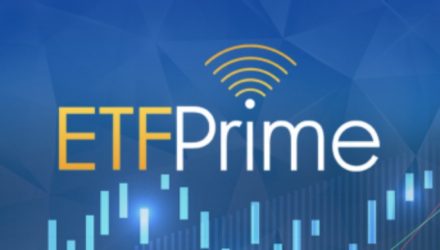On this week’s episode of ETF Prime, host Nate Geraci was joined by VettaFi Editor-in-Chief Lara Crigger to discuss Fidelity’s recent decision to charge trading fees on ETFs from some issuers. Crigger also discussed a recent Cboe’s SEC filing. The filing seeks to allow fund companies to offer ETF share classes of existing mutual funds. Geraci was later joined by Chris Davis, chairman, and portfolio manager of Davis Advisors, to discuss the top-heavy nature of the stock market.
Pay-To-Play Concerns
Geraci asked Crigger to weigh on reports of Fidelity charging a $100 fee to clients seeking to invest in nine ETF issuers. Geraci noted that these issuers refused to pay Fidelity for a “maintenance arrangement.” He asked Crigger if she believes fees like this will become a part of a bigger trend. Crigger noted that this has already been an issue in the industry. Other companies, like Charles Schwab, charge fees to ETF sponsors. However, Crigger said that the issuer fees, while common, vary in cost by sponsor. She added that it “doesn’t seem necessarily fair to me.”
“Maybe Fidelity was hoping that by levying $100 charge per trade, they were going to bring these nine issuers into compliance with everybody else. And maybe they were hoping that, you know, pressure from investors would be so intense that the issuers would have no choice but to pony up. But gosh, what a huge PR backfire for Fidelity. I think the optics here are just astonishingly bad,” Crigger added.
Disproportionate Targets
Geraci responded, referring to these trading fees as “the industry’s dirty little secret.” He then asked Crigger if these trading fees could disproportionately affect smaller ETF issuers. “This is an existential threat for smaller ETF issuers,” Crigger asserted. She noted that both fund performance and costs to traders are key factors determining investor interest in an ETF. Smaller issuers that don’t possess the funds to pay. Companies like Fidelity may find it difficult to capture investor interest, should the fund possess a higher fee for investors.
Expense Ratio Hikes
Geraci then posed a query to Crigger. For issuers that do pay a revenue share to companies like Fidelity, could traders start seeing higher expense ratios on ETFs to compensate? Broadly speaking, Crigger asserted that she supports lower investor costs to democratize ETF access. Crigger noted that issuers should make investors aware of the reason why a fund’s expense ratio is rising. “I think more information is better. And a fairer playing ground where everybody is being charged maybe the same flat amount. And it doesn’t vary, it’s very well disclosed,” Crigger noted.
Share Class Structures
Moving on, Geraci asked Crigger what she thought about the Cboe filing with the SEC. The Cboe filing requested the SEC to allow fund providers to offer ETF share classes from mutual funds. Geraci noted that a number of fund providers, such as Dimensional, Fidelity, and Morgan Stanley have already filed for this change. However, the motion is now getting support from an exchange like Cboe.
Crigger asserted that Cboe’s support of the measure “is one of the most underappreciated big stories in the ETF industry right now.” Crigger noted that many industry players she has spoken to are monitoring this filing. While the applications from fund providers have been held at the SEC for almost a year, the Cboe filing works differently. Now that Cboe has weighed in, the SEC has to respond within 240 days. Otherwise, the rule change simply takes effect. But why did Cboe choose to weigh in? Crigger theorized that the exchange wanted to get ahead of the approval process for getting any of the filed products listed.
State of Play
To close out this week’s podcast, Geraci was joined by Chris Davis, chairman and portfolio manager of Davis Advisors. Geraci asked Davis for his opinion on the top-heavy nature of the market, given how heavily the top performers weigh on the S&P 500. Davis asserts his concerns over the top-heavy nature of the market. He noted a similarity to the internet bubble of the late ‘90s. Much like when investors overweighed internet tech in the late ‘90’s, Davis felt investors are under the impression that “you can’t lose money in these big momentum stocks.” Davis added that they are uncertain as to what will happen whether the top-heavy market will conclude with a burst, or if “it happens in a long, glacial period where the rest of the market begins to catch up.”
Listen to the entire episode of ETF Prime, featuring Lara Crigger and Chris Davis:
For more ETF Prime podcast episodes, visit our ETF Prime Channel.

